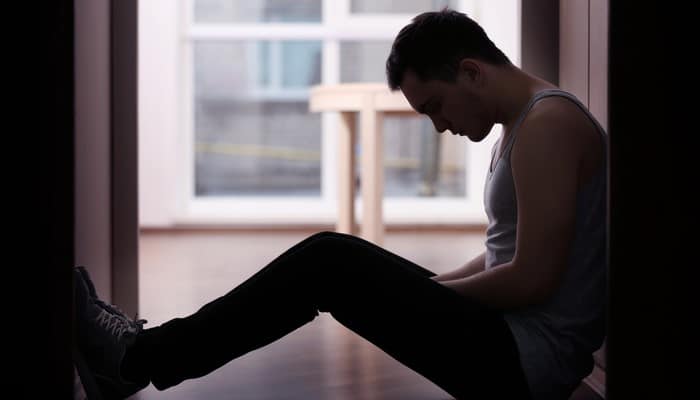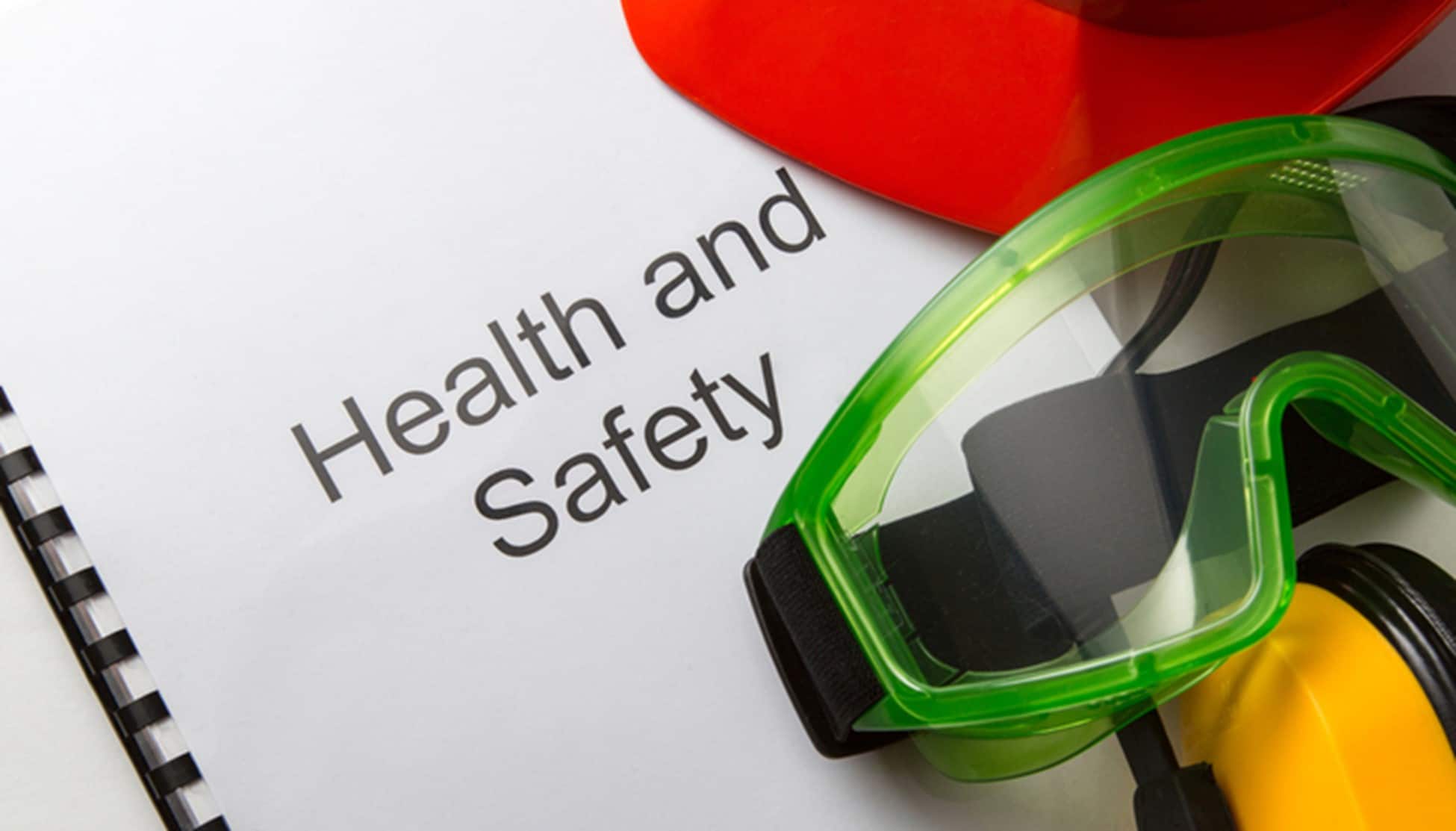
We find ourselves in the grips of a humanitarian, economic, and health crisis, unlike any we have seen in recent years. People worldwide are faced with possible health and financial concerns that they could not have anticipated or prepared for. In essence, the coronavirus (COVID-19) pandemic has swept the world and completely changed our way of life.
As governments and medical professionals look for ways to keep us safe, we find ourselves having to abide by protective measures such as quarantine, social distancing, and working from home. While measures such as these have our best interest at heart, coping with coronavirus protective measures can negatively affect us. These sudden changes, combined with a level of uncertainty surrounding the coronavirus pandemic, are bound to bring about additional stress, which can affect overall physical and psychological well-being. In order to keep ourselves and those around us safe, we must take time to consider mental health during COVID19.
What is Mental Health?
Mental Health encompasses our cognitive, emotional, social, and psychological well-being. These are all essential aspects of our lives that dictate how we think, feel, and behave on a daily basis. This means that our mental health plays a large role in decision making, managing stress, and interactions. A person can have a mental disorder or disability (be mentally ill), or they can be mentally well. However, these are not two absolutes. In order to understand how mental health affects our daily lives, we must re-examine how we see mental health.
The Way We Look At Mental Health
There seems to be a limited amount of insight when it comes to mental health information in the general public. When people hear the term mental health, many associate it with mental disorders or disabilities that affect an individual. They tend to look at it as something black or white – either a person is mentally ill or is mentally well. The fact of the matter is that this could not be further from the truth. While mental health does look at mental disorders and disabilities, that is only part of a larger picture. Mental health is something we all have. The best way to look at mental health is as a spectrum. At one end of the spectrum, we have mental disorders (depression, anxiety, etc.), while at the other end, we have positive mental health – feelings of being content, happy, and fulfilled. People can always move up or down the spectrum and experience varying levels of mental health. The goal of mental health resources and interventions is to help people move up and experience more positive emotions.
How the Pandemic Can Affect Mental Health
The COVID-19 virus is affecting a lot more than our physical health. It is affecting mental health, as well. The constant uncertainty, bad news, and stress that the pandemic brings about can put people on edge. These are some of the ways in which the coronavirus disease can affect our mental health.
● Drastic Change
It seems that the start of the year was so calm and peaceful. The COVID-19 pandemic was being talked about, but many people in the world did not seem to recognize just how serious the virus was. In a matter of weeks, the virus spread to multiple countries all over the world. Many people were caught off guard at how suddenly life changed as governments started implementing protective measures to keep the population safe. In a matter of days, the plans we made came to a screeching halt and were replaced with face masks, social distancing, and limited movement. This drastic change from normal left many without the proper coping strategies or stress management techniques necessary for such a sudden and radical change.
● Restricted Movement
One of the most effective ways of limiting the spread of COVID-19 is social distancing. Many countries are following China’s example of infection control and restricting movement. People are asked to stay indoors, and many areas are enforcing curfews or complete lockdowns. While these are highly effective measures, they still seem to have some harmful psychological effects. There are two main ways we see restricted movement affecting people.
Isolation – As we move indoors to flatten the curve, we find ourselves confined to our homes for extended periods. A measure that was meant to keep us safe and protected leaves many feeling as if they are imprisoned in their homes. Many report increased levels of anxiety or stress from staying indoors and communicating less with people. After all, humans are social creatures that crave connection and communication. This is especially true for teenagers and younger adults. As our normal routines and communications shift entirely to the digital world, many people report feeling socially isolated. As the feeling of cabin fever creeps in, many are reporting feeling anxiety and depression, which can lead to substance abuse and mental health decline.
Feeling attacked – While many people are abiding by the rules set in place, others feel that the measure is too extreme. They feel like curfews and restricted movement are not enough to flatten the curve, and they are calling the actions deprivation of liberty. This outlook can bring about anger, annoyance, and other feelings that can stress us out and affect our mental well-being.
● Financial Pressures
The COVID-19 pandemic has greatly affected economies all around the world. The preventive measures put into place have many businesses shutting their doors to the public. Those that can stay open are facing numerous problems, such as affected supply chains, fewer clients and customers, altered plans, and more. Managers and employees are facing a lot of stress during these difficult times. Many businesses are trying to keep their head above water and not become insolvent. This can lead to cost-cutting measures, such as reducing wages or even worse, letting people go. The constant financial worry and stress that this causes can severely impact mental health.
● Feeling of Uncertainty
The COVID-19 outbreak that we are experiencing is unlike anything we have seen in recent years. While there have been pandemics in the past, nothing has quite compared to the magnitude and effects of this virus. While countries all over the world are battling to flatten the curve and keep people safe, there is still a sense of uncertainty about the situation. After all, no one knows for sure how long this virus will last or its effects in the future. This overhanging sense of uncertainty leaves many people feeling fearful or angry, which can make maintaining mental health difficult in the short term.
● Burnout and Stress
While many businesses are closing down due to the virus, other professions and industries are seeing a rise in work. Essential workers all over the world find themselves having to work longer hours to keep the situation under control. This is especially true for the healthcare workers in medical institutions who are caring for patients and first responders fighting to keep people alive and safe during these difficult times. The additional duties, such as administering psychological first aid to panicked individuals, can take its toll. The additional pressure and stress healthcare personnel experience in their line of work can lead to fatigue, stress, and a decline in mental health.
Mental Health Disorders and the Pandemic
With numerous stressors during these difficult times, it is clear that our mental health can be affected. We can expect to experience periods when we feel angry, anxious, afraid, stressed, sad, or worried. These are unavoidable emotions that we are bound to feel at one point or another. While they are to be expected from time to time, problems can arise when these emotions become severe enough to affect a person’s everyday lifestyle. If such extreme emotions persist for longer periods of time, they can develop into mental health problems. It is important to look at the ways these stressors and coronavirus anxiety can affect mental health.
● Anxiety Disorders
Anxiety disorders are one of the most common mental disorders in the world. While this is widespread, it is important to know the difference between anxiety disorders and normal anxiety. Anxiety, in itself, is not a bad thing. It is a signal that allows us to worry about things that affect us, and it is healthy when it prompts us to take action. In many cases, normal anxiety is the trigger that makes us finally get up and get started on fixing a problem. Normal anxiety comes and goes and does not affect our everyday lives.
Anxiety disorders differ from the normal anxiety we experience when under stress. Anxiety disorder is somewhat unique in that it can manifest at almost any age of life. The only thing it requires is an extreme stressor, which leaves us overwhelmed and unsure of how to cope. These are situations where anxiety completely takes control and starts to impact our everyday lives negatively. It is characterized by persistent feelings of anxiety that can affect every aspect of our lives. Anxiety disorders tend to overstimulate the sympathetic nervous system (fight or flight response), which can affect health by releasing stress hormones and wearing us down physically and mentally. In such cases, anxiety can completely overwhelm us, causing significant distress or impairment (freezing up), which can cause a feeling of helplessness. This can lead to ruminating (overthinking) and withdrawal from situations and people.
Forms of anxiety disorders – Anxiety disorders can manifest in multiple ways. They are usually determined by outside events (what the stressor is) and by an individual’s tolerance to stress. There are multiple ways that an anxiety disorder can manifest in an individual. The American Psychiatric Association recognizes these common anxiety disorders.
- Generalized anxiety disorder
- Obsessive-compulsive disorder (OCD)
- Panic disorder
- Phobias
- Post-Traumatic Stress Disorder (PTSD)
● Mood Disorders
We all experience various positive and negative emotions throughout our lives. They are there to help us adjust to our environment and take action on things that matter to us. While bad moods are a common thing, they tend to pass with time. People who suffer from mood disorders experience long and extreme periods of excessive emotions. Two extreme manifestations of mood disorders are depression and bipolar disorder. Both can negatively affect an individual’s quality of life.
Depression – Depression is a mood disorder that is characterized by persistent feelings of sadness and loss of interest. Unlike everyday mood changes that we all experience, depression lasts for an extended period of time and negatively affects those suffering from it. It can lead to physical and emotional problems that affect our work and lives. Depression is a widespread mood disorder that is treatable.
Bipolar disorder – Bipolar disorder is a mood disorder characterized by extreme mood changes that manifest as manic episodes of elation to extreme bouts of depression. The mood disorder is also known as manic-depressive disorder. These transitions from overly happy and energized to being sad, hopeless, and sluggish can lead to poor work, family, and social lives.
When Should You Get Help?
As you can see from reading over some of the more common disorders, there are many variations when it comes to mental health. However, many of these symptoms can become more severe due to the pandemic’s additional stresses and the uncertainty and fear it can bring. If you experience the following symptoms, consider reaching out for assistance.
- Thoughts of self-harm or harming others
- Persistent feelings of anxiety, worry, fear, anger, or sadness.
- Frequent mood swings or emotional outburst that affect your everyday life.
- Feelings of confusion or unexplained loss of memory.
- Experiencing hallucinations or delusions
- Dramatic changes in eating and sleeping habits.
- Unexplained changes in work or school performance
- Difficulty or inability to cope with daily activities and challenges
- Sudden or gradual withdrawal from relationships or social activities
- Substance abuse, such as alcohol, drug and narcotics
Mental Health Resources
There are numerous mental health resources and health care providers that can help with mental illness. Consider the following resources if you suspect that your mental health has been affected or think you need mental health support.
● Suicide Prevention Hotlines
With so many things going on around us, many will be plagued by dark thoughts. If you feel overwhelmed by your current circumstances and are thinking about harming yourself, consider reaching out to a suicide prevention hotline. You can contact the National Suicide Prevention Lifeline at 800-273-8255. It employs professionals that are there to help and offers 24/7 support.
● Healthcare Providers That Can Prescribe Medicine
If you are experiencing severe mental illness symptoms that might require medication, then it is important to reach out to healthcare providers that can prescribe you the medication you need. Such healthcare providers include:
Therapists – Therapists can assist in diagnosing and treating mental health conditions. They often specialize in certain fields and can help people suffering from specific types of mental health problems or assist in redirecting patients to professionals that can better help them.
Psychiatrists – A psychiatrist is a healthcare professional that is an expert in mental health. They specialize in diagnosing and treating people suffering from mental illnesses. They have a deep understanding of both mental and physical health and how they influence each other.
Nurse psychotherapists – A nurse psychotherapist is a healthcare worker that can treat and diagnose psychiatric disorders and other conditions.
Psychologists – Psychologists are health practitioners that are trained to diagnose and treat mental health conditions and challenges. They can help patients manage symptoms through therapy. In certain states, they can prescribe medication if necessary.
While many of these professionals may not accept in-person patient visits due to the COVID19 pandemic, they may offer virtual services. Many health organizations are embracing telemedicine and providing their services where possible online. If you require a visit to the doctor, they might be able to set up an in-person visit.
● Providers Who Cannot Prescribe Medicine
In milder forms of mental illness, people are not limited to reaching out to healthcare workers that can prescribe medicine. They also have the option of reaching out to individuals who can change their outlook or help them approach matters differently. If you are looking for assistance and do not require medicine, consider the following options:
Peer specialists – These are people who have experienced and recovered from mental health challenges. They are there to provide support and help people going through difficult situations.
Family and marital therapists – These are therapists trained in psychotherapy and family systems. They can help families, couples, and individuals.
Licensed professional counselors (LPCs) – These are people qualified to offer individual and group counseling.
Mental health counselors – Mental health counselors are trained to diagnose and treat people coping with difficult life experiences. They can provide counseling for individuals or groups.
Social workers – These are professional therapists with a master’s degree in social work. They can offer counseling and often work in hospitals, private practice, or clinics.
What Does It Mean to Be Mentally Healthy?
The aim of mental health interventions is to help people reach their full potential and live satisfying lives. Positive mental health can enable an individual to:
- Become resilient and cope with difficult situations
- Have a sense of control
- Be able to properly take care of oneself
- Feel a sense of confidence
- Experience positive emotions
- Manage and express emotions
- Build and maintain healthy and good relationships.
- Be more productive
- Contribute to their communities and the people around them more effectively.
If you need additional resources during the coronavirus crisis, reach out to Safety4Employers. Safety Associates For Employers can provide guidance, mental health sources for psychosocial support, occupational health and safety coaching, compliance, education, leadership and training services for construction, general industry, and mining.








